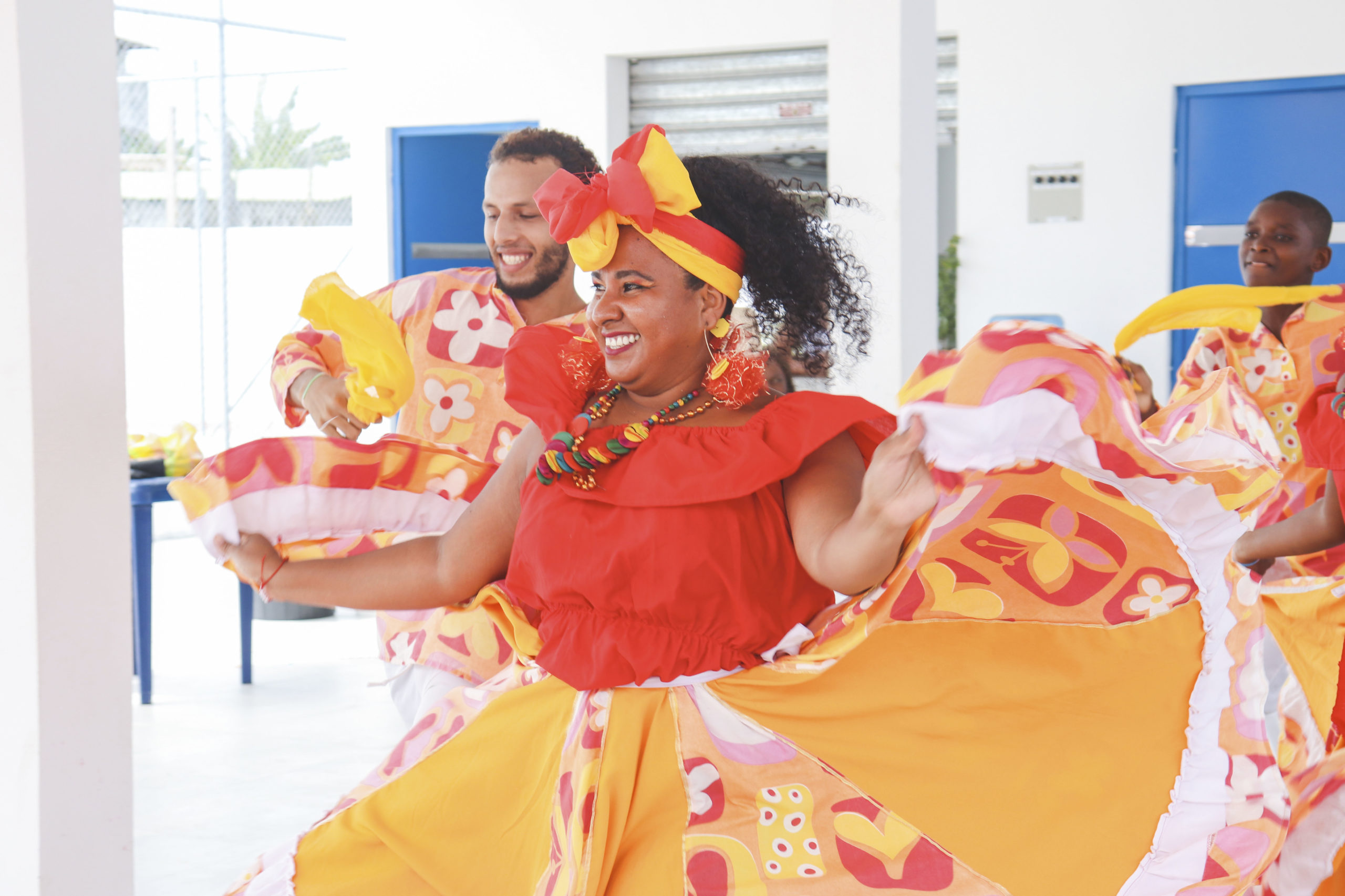‘For me the experience of RECLAMA is summed up with the word “wow”. It turned my life around, wow, in a totally incredible way! Incredible because I honestly didn’t recognise myself before [as a Black woman]. Now I mean, I almost don’t recognize myself either because I’ve grown a lot, I’ve grown mentally, even physically.’
Jaritza Marquez Bone shared this powerful statement when reflecting on her experience as a peer researcher on the RECLAMA project. Her sentiments encapsulate some of the crucial impact that this research project is making in Esmeraldas province, Ecuador, the poorest province in the country, with a high percentage of its population being of Afro-descent.
RECLAMA (Recuperando y celebrando la herencia de mujeres afroecuatorianas/Harnessing Afro-Ecuadorian women’s heritage), a feminist, transnational, anti-racist and decolonial research project, works with Black and Afro-Ecuadorian women in Esmeraldas to make visible and celebrate their rich and varied heritage and culture, and strengthen it to promote sustainable and equitable development in a context of ongoing deprivation and increasing levels of violence.
Esmeraldas is a coastal province, located in north-west Ecuador on the border with Colombia, and has some of the highest levels of poverty and deprivation in Ecuador. Development indicators, such as levels of literacy, access to clean water, healthcare provision and infrastructure, are far below those of the country as a whole, and the province suffers from very high levels of violence, including gender-based violence. In recent weeks, the situation here has worsened, with the province being placed under a State of Emergency due to heightened insecurity and drugs-related violence.
Mujeres de Asfalto
RECLAMA is a collaboration between activists and academics from the Universidad San Francisco de Quito, Northumbria University, and the Mujeres de Asfalto Collective, and is funded by the British Academy and the Global Challenges Research Fund (GCRF). The Mujeres de Asfalto Collective is a Black feminist community arts organisation based in Esmeraldas, who have been at the forefront of championing Black and Afro women’s rights for over 20 years. Led by Juana Francis Bone, Mujeres de Asfalto has successfully coordinated and delivered the activities of the RECLAMA project in Esmeraldas, over three challenging years – including the Covid-19 pandemic, growing economic instability, and the deteriorating security situation in the province.
A group of 16 young Afro-Ecuadorian women peer researchers have been at the heart of the project. During a series of workshops and activities, they were trained in how to undertake life history interviews, and involved in the co-designing of the research process. Together, they have collected over 60 life histories from Black/Afro-descendant women across all seven cantons of the province, supported at all stages by the team from the Mujeres de Asfalto Collective.
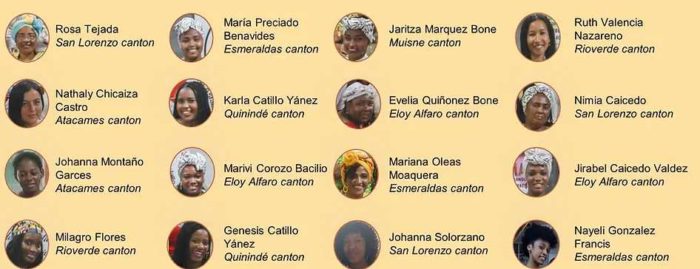
Being involved in the project has been of vital importance for the women themselves; at a time of growing precarity and insecurity the project has created safe spaces to share and reflect on memories and experiences, as well as to have inter-generational conversations and pass on culturally specific practice and knowledge. In reflecting on these experiences the peer researchers emphasise the sense of empowerment they have felt from being involved in the project, as peer researcher Genesis Castillo Yánez explains:
‘It was a wonderful experience for me to be a researcher for RECLAMA because, in addition to collecting data, I was also able to learn and get to know about [the] life experiences of Afro-Ecuadorian women from Esmeraldas province, how their ancestors lived, especially taking into account that most of the women I interviewed were between 60 and 80 years old, who still preserve all those traditions of how they lived, what it has been like since they were little, how Afro-Ecuadorian women are different today […] It was a very nice experience, really […] being there listening to those women speak and even more so when they are older, they were happy that a young woman had come to hear their story.’
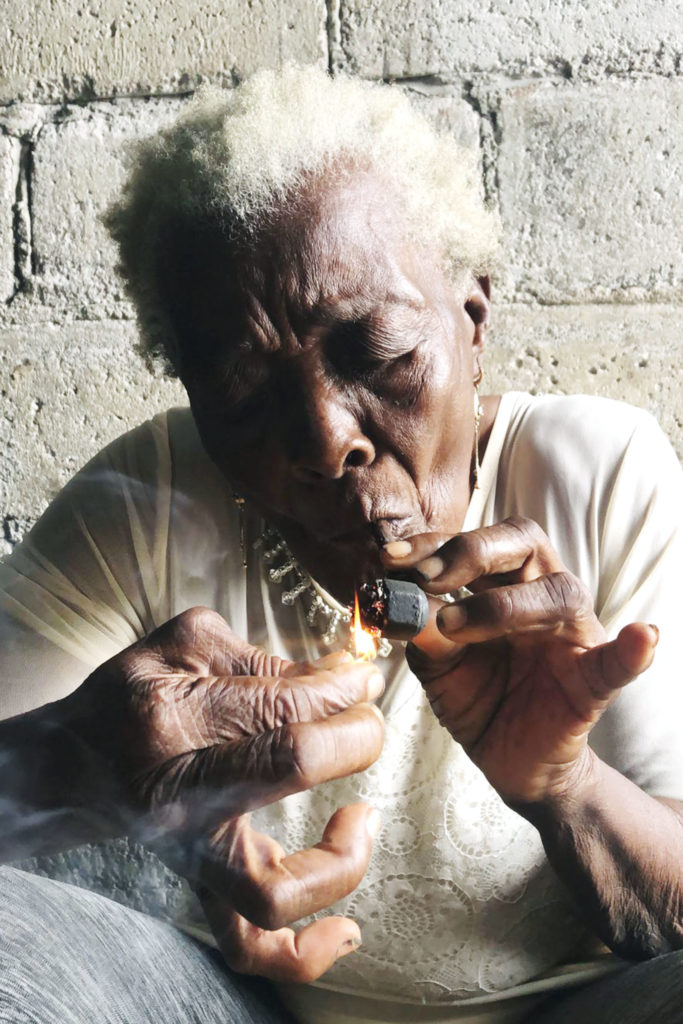
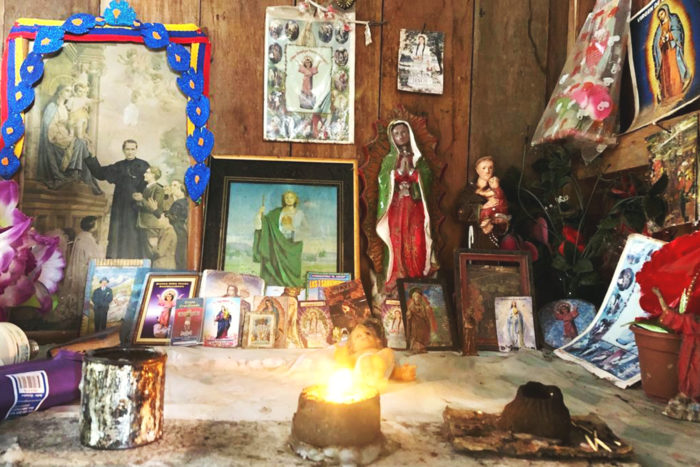
The life histories collected in the project capture the rich and varied stories and experiences of women from across the province – from traditional birth attendants to teachers and tailors. The life histories provided a starting point for further participatory workshops, exploring the central themes of RECLAMA – memory, black/Afro identity, territory, and the intangible heritage of the black/Afro-descendant communities in Esmeraldas, particularly women.
Capturing culture and heritage
Through this process, religious and spiritual practices, food and gastronomy, traditional plants and medicines, and aesthetics were identified as key themes; these were explored in greater depth as participants developed a series of creative products based on them, including artwork, photography, and short documentaries. The creative products provide a means of sharing and making more visible the rich cultural heritage of Afro-descendant women in Esmeraldas, as well as challenging negative stereotypes and the marginalisation and exclusion of Afro-Ecuadorian women from the public sphere.
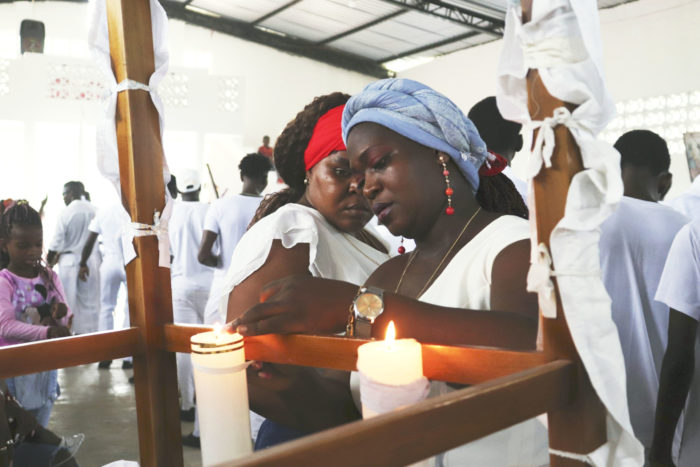
The creative products are now being shared in a range of public events in both Ecuador and the UK. This includes recent exhibitions and film screenings in Esmeraldas city and Quito, and a film screening, and Q&A in Newcastle, UK, on 16 November. A photo exhibition will be in the Star and Shadow café, Newcastle, from 11–21 November. Such exhibitions play a central role in increasing public knowledge about Afro-Ecuadorian culture and heritage, and foreground positive, joyful representations of Black and Afro heritage, culture and everyday practices, in a context where these have not always been valued. This public recognition is of crucial importance to the women who have been involved in the project as peer researchers and research participants.
Dance costume, food, cooking, hair-braiding: all key elements in the cultural heritage of Afro-Ecuadorean women
As peer researcher Rosa Tejada explains:
‘When we were raised, we were always studying about others, speaking about others, but no one ever spoke about us, about black people. I remember, that in the Ecuadorian school books, a black man appeared with… well-pronounced, red lips, as if to ridicule us, and say that this was what black people are like. And that was worrying, and it was worrying the people, our sisters and brothers, and they understood that there was a need to tell [people] about us, and to know who we are; that there were black men and women who fought for freedom, and who contributed to the development of this country. So, when RECLAMA arrived and committed us to this research, it was a satisfaction for us. To go complement and increase our knowledge based on this research project, conducted in [our] territory.’
There will be a film screening, and Q&A in Newcastle, UK, on 16 November. A photo exhibition will be in the Star and Shadow café, Newcastle, from 11–21 November.
All the photos in this article were taken by RECLAMA participants and collected as creative outputs of the project.
For more information you can visit the project website or contact the project team (katy.jenkins@northumbria.ac.uk)


